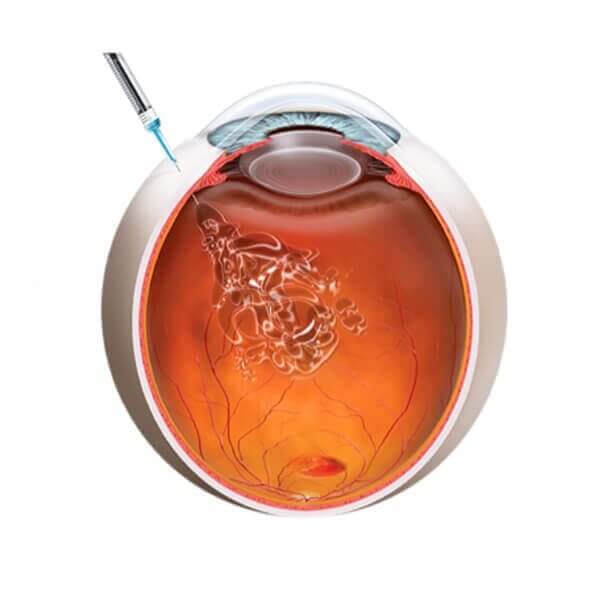


Anti VEGF treatments can help with a variety of eye conditions, including macular degeneration and retinal issues.
VEGF is an angiogenic factor, which means it aids in the formation of new blood vessels. Some VEGF is required for critical bodily functions, but it can also promote abnormal blood vessels and tumour growth.
AntiVEGF treatments can aid in the normalisation of a person's VEGF levels.
Anti VEGF medications target and inhibit VEGF molecules. This slows the rate of cellular growth. When used correctly, this can help to restore normal cellular growth.
The drug is typically administered via injection in a doctor's office for eye health conditions. The number of injections required is determined by your doctor's diagnosis of your condition, and the course of action they believe is best for you. Injections can be given every few weeks or months.
This treatment course can last for quite some time. It can take months or years for a patient to see the full effect.
